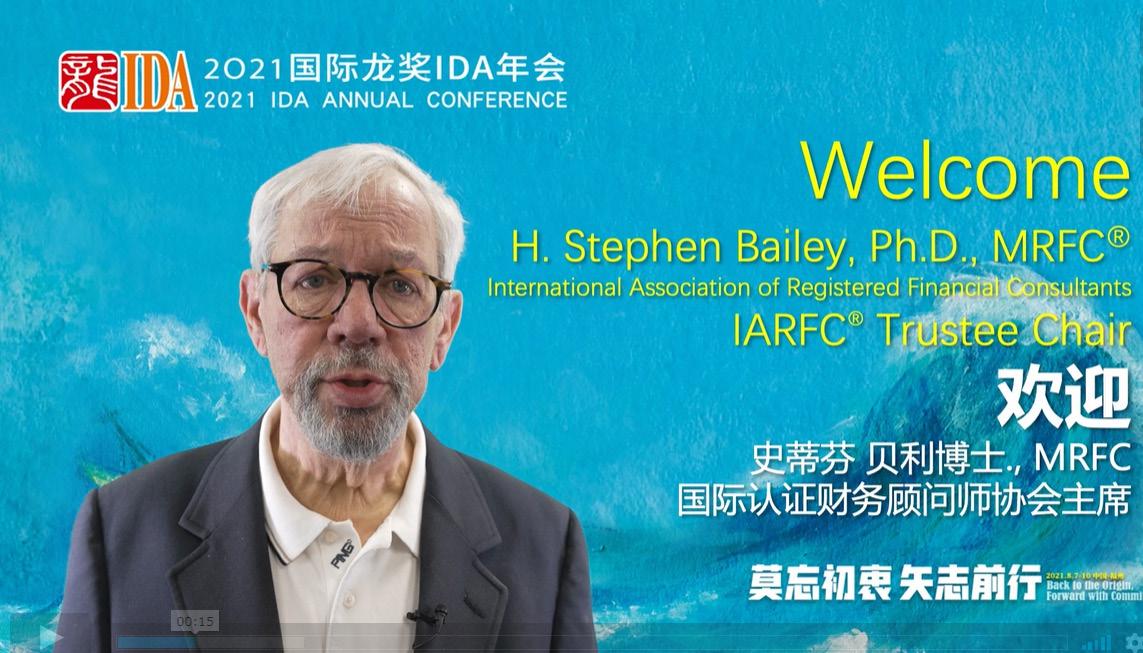
6 minute read
By Ryan Van Sickle
I know, you’re a financial consultant not a content specialist. But content creation and distribution plays an important role in any successful marketing effort.
Simply put, content is useful information. It can be:
• A photo with or without a caption • A social media post • An infographic • A video testimonial • A webinar • An eBook • A downloadable guide • An article in a financial industry trade publication • A blog on your website
Some financial professionals rely on direct mail, social media, TV, radio, billboard, and newspapers to reach their target audiences. These are examples of outbound marketing, where the owner is pushing the message to its intended recipients. But traditional advertising alone isn’t enough anymore. We are now living in a digital world.
At its core, LeadingResponse’s mission is to connect consumers to service professionals to help them navigate life’s most challenging and impactful decisions. Whether you’re marketing a social event or workshop, a webinar, an appointment offer, or just generating leads, consumers in today’s world are conditioned to do their research online. Are you certain you’re providing enough value when they visit your website? The Importance of Blogging
Inbound marketing has proven highly successful in marketing financial businesses. As the name suggests, this strategy involves cultivating prospective customers by providing them with helpful content. The inbound process is attracting and engaging by either answering a question or helping the prospect solve a problem – sometimes, one they didn’t know they had.
By offering valuable content such as regular blogs, you can educate your audience and convert them into prospects. Here are five ways blogging will help you generate leads.
Blogging Brings Prospects to Your Website
Today, most consumers use the internet to research product and service providers.
Consumers looking for a financial planner or consultant in your area are likely to land on your website. However, if these visitors don’t find useful content, they won’t stay for long. That’s why it’s critical to publish useful information on a consistent basis. And one of the best ways to keep them on your website is with a blog.
The great thing about blogs is, you can share the information in multiple ways. Once a blog is written, announce it in an email to clients and prospects with a link guiding them there. Create social media posts that push people to your new blog. All these solutions drive more traffic to your website. If you’re not yet publishing a blog on your website, you’ll want to ensure the home page design is simple and clean before you do. A visitor should immediately get the message that you are knowledgeable, trustworthy, and committed to helping people manage their financial affairs. You want them to get to know you - more on that later.
Blogging Improves Your Search Engine Ranking
How do people research products and services on the internet? By entering their question or concern into a Google search box. If they are looking for a financial professional, they’ll type in “financial consultants near me” or something similiar.
You’ve probably heard the term SEO, or search engine optimization. A blog written with SEO in mind has a much better chance of being found when a consumer enters search terms related to your business, than one not optimized for searches.
As inbound marketing, sales and service provider HubSpot explains, blogging itself improves SEO quality by helping to position your website as a relevant answer to the questions your customers have. And a blog incorporating SEO tactics boosts its searchability even further.
Blogging Demonstrates Your Brand Value
Back in 1991, a young Dwayne Johnson was a freshman defensive lineman at the University of Miami. After losing his starting spot to future
Dwayne Johnson transformed himself into “The Rock” in an homage to his father, a professional wrestler. Johnson became one of the characters in the history of professional wrestling. He has since gone on to become an A-List Hollywood actor, TV show host and producer, and has his own clothing line in a global partnership with the Under Armour brand.
What does this superstar have to do with you? When all is said and done, he’s a commodity selling himself. You’re a commodity selling yourself, as someone who helps people with their financial needs.
And a blog is the ideal place to do it. As online marketing guru Neil Patel notes, “It’s a hub for your advice.” It’s a place to show who you are. Your blog is where you set your tone as warm and friendly, helpful and knowledgeable – and approachable.
Blogging Helps Position You as an SME
You’re on LinkedIn, right? The professional social media platform with 740 million members and 55 million registered companies.
Not only can you write articles for your website, but you can also publish them on LinkedIn. While not everyone has the time or resources to do both, you can quickly widen your marketing reach if you do.
A blog is meant to drive traffic to your website. One way to ensure success is to demonstrate you’re a subject matter expert, or SME, that consumers can rely on. LinkedIn suggests including at least one “nugget of wisdom” in each blog.
Remember, you want to position yourself as an expert in your field. Include client anecdotes occasionally, so your readers can see how your advice positively impacted another person or a family. But make sure you get their permission first.
You want to assist your prospects (and current clients) with their finances. If you provide information that helps them, they will read your blog – and come back for more. While your blog is a business communication, you don’t want it to be dry and boring. There’s no point in doing a blog if your personality doesn’t come through and your purpose isn’t clear.
I’m going to go out on a limb here and assume you got into the financial services industry to help others in your community. Yes, you want to make money – you’re running a business, after all. But there’s something very powerful about making a real difference in others’ lives.
So tell your story. Share what attracted you to the financial services industry. Talk about how you’ve helped clients avoid financial loss, or even better, achieve financial stability and security. Explain why you do what you do. And why it all matters.
To summarize, blogging helps financial consultants generate leads for their business. You’re not selling. You’re providing information of value to your audience on a regular basis. It’s a proven way to attract and engage prospects.
And when they’re ready to work with a professional to manage their investments and retirement nest eggs, your readers will turn to you, because you’ve shown you are someone they can trust.
Ryan Van Sickle
Ryan Van Sickle is Director of Advisor Development at LeadingResponse. He joined the company in 2009 and works with independent financial professionals, FMOs, RIAs and broker-dealers to build brand awareness and grow their business.
10 Member Benefit

Performance Training and Coaching
How to have a 90% closing ratio and an abundance of quality referrals without being pushy or controlling!
Sidney C. Walker: Sales Performance Author/Trainer, Coach, Champion of the low key approach for relationship oriented financial consultants.
What you will learn: • Essential sales skills • Interviewing skills • Prospecting skills • Organizational skills
Access to: • Over $10,000 of client acquisition training materials • Over 90 hours of audio and • Hundreds of pages of printed material.
Https://www.SellingWithoutWrestling.com Contact: (866) 674-9479 Individual Coaching: www.sidewalker.com
Visit the IARFC Store...
BRAND BUILDING EDUCATIONAL PUBLICATIONS INSIGNIA ITEMS PORTFOLIO SUPPLIES The Register | Summer 2021 PRESENTATIONS WHITE PAPERS










